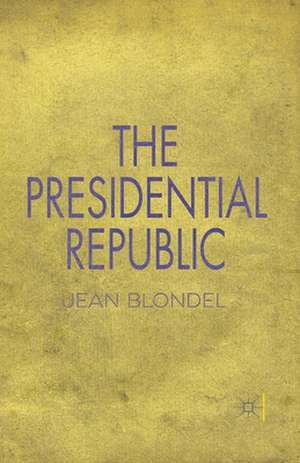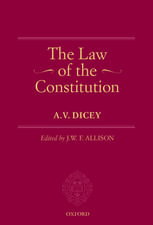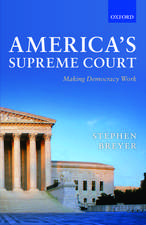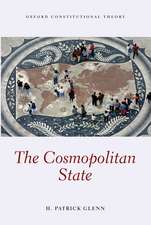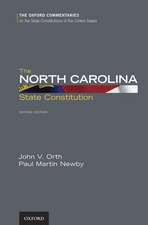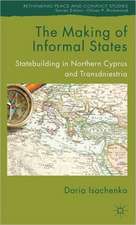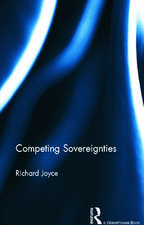The Presidential Republic
Autor J. Blondelen Limba Engleză Paperback – 2015
| Toate formatele și edițiile | Preț | Express |
|---|---|---|
| Paperback (1) | 387.75 lei 43-57 zile | |
| Palgrave Macmillan UK – 2015 | 387.75 lei 43-57 zile | |
| Hardback (1) | 393.90 lei 43-57 zile | |
| Palgrave Macmillan UK – 29 apr 2015 | 393.90 lei 43-57 zile |
Preț: 387.75 lei
Nou
Puncte Express: 582
Preț estimativ în valută:
74.19€ • 77.67$ • 61.39£
74.19€ • 77.67$ • 61.39£
Carte tipărită la comandă
Livrare economică 07-21 aprilie
Preluare comenzi: 021 569.72.76
Specificații
ISBN-13: 9781349503117
ISBN-10: 1349503118
Pagini: 339
Ilustrații: IX, 339 p.
Dimensiuni: 140 x 216 mm
Greutate: 0.41 kg
Ediția:1st ed. 2015
Editura: Palgrave Macmillan UK
Colecția Palgrave Macmillan
Locul publicării:London, United Kingdom
ISBN-10: 1349503118
Pagini: 339
Ilustrații: IX, 339 p.
Dimensiuni: 140 x 216 mm
Greutate: 0.41 kg
Ediția:1st ed. 2015
Editura: Palgrave Macmillan UK
Colecția Palgrave Macmillan
Locul publicării:London, United Kingdom
Cuprins
List Of Tables Preface Acknowledgement 1. Introduction. The Need To Study The 'Presidential Republic' As A General Phenomenon Of Contemporary Government PART I: THE GENERAL CHARACTERISTICS OF THE PHENOMENON OF THE PRESIDENTIAL REPUBLIC 2. The Wide Spread Of Presidential Republics And Their Key Role In The Political Development Of 'New' Countries 3. The Alternatives To The Presidential Republic Which Remained By The Late Twentieth Century: Monarchies, Parliamentary Republics And 'Full' Military Rule 4. The Central Role Of Leadership In Presidential Republics, But The Difficult Emergence Of True 'Civilian Republican Leaders' PART II: PRESIDENTIAL REPUBLICS IN A COMPARATIVE HISTORICAL PERSPECTIVE 5. The Almost Total Lack Of Adequate Leadership In Spanish America During A Prolonged And Harsh Independence Process From 1810 To The Late 1820s 6. Latin American Presidential Republics From About 1830 To The Beginning Of The Twenty-First Century 7. The Quasi-Universal Adoption Of The Presidential Republic In Africa After The End Of Colonialism From The 1950s 8. A Divided Africa United By Presidential Republics At The Beginning Of The Twenty-First Century 9. The Quick Move Towards The Presidential Republic In Eleven Very Different Countries Of The Ex-Soviet Union From The Early 1990s 10. The Limited Spread Of Presidential Republics In Asia And Its Highly Exceptional Presence In Europe, Even Outside The EU PART III: PRESIDENTIAL REPUBLICS: THEIR PAST AND THEIR FUTURE 11. Has There Been 'Progress' In The Characteristic Life Of Presidential Republics? 12. Presidential Republics Are Not Inherently Unfit To Govern 13. Conclusion: Unity And Diversity In Presidential Republics
Recenzii
“In this original and well-organized work, Blondel (European University Institute, Italy) provides a historical and comparative study of presidential systems in the world … . The book is important for students of Latin America, Africa, and the former Soviet Union because of the inclusion of key chapters, with effective tables, on the evolution of presidentialism. … a very useful book for both political science and area studies. … Summing Up: Recommended. Upper-division undergraduate, graduate, research, and professional collections.” (A. Siaroff, Choice, Vol. 53 (7), March, 2016)
'Jean Blondel has an aptitude for picking out important topics and demonstrating not only that there is a lot more to say about them, but also that many more basic facts are available within a comparative context. This weighty book takes the debate on Presidential leadership beyond the Anglo-American context to the neglected cases of Latin America (over 200 years), the former Soviet Union and South East Asia. Just to have a focussed discussion of politics in these countries is invaluable. But also to have well-founded generalizations about Presidential leadership will be a great aid to political analyses at a time when this topic is becoming increasingly important.'
Ian Budge, Professor Emeritus, University of Essex, UK
'This is an insightful encyclopedic examination of the almost infinite range of variations among "Presidential Republics" in the world. I have no doubts that this book will be a central point of reference in further comparative research on presidential governments.'
Ferdinand Müller-Rommel, Chair of Comparative Politics, Leuphana University Lüneburg, Germany
'Jean Blondel gives us a vital contribution to our understanding of presidentialism. He rehabilitates the image of this type of politicalregime by showing that the presidential invention by the Americans was an alternative to the monarchy. Hence the importance of legitimacy given to a man, the president elected by the people directly or indirectly.'
Jean-Louis Thiebault, Professor Emeritus, University of Lille, France
'Jean Blondel has an aptitude for picking out important topics and demonstrating not only that there is a lot more to say about them, but also that many more basic facts are available within a comparative context. This weighty book takes the debate on Presidential leadership beyond the Anglo-American context to the neglected cases of Latin America (over 200 years), the former Soviet Union and South East Asia. Just to have a focussed discussion of politics in these countries is invaluable. But also to have well-founded generalizations about Presidential leadership will be a great aid to political analyses at a time when this topic is becoming increasingly important.'
Ian Budge, Professor Emeritus, University of Essex, UK
'This is an insightful encyclopedic examination of the almost infinite range of variations among "Presidential Republics" in the world. I have no doubts that this book will be a central point of reference in further comparative research on presidential governments.'
Ferdinand Müller-Rommel, Chair of Comparative Politics, Leuphana University Lüneburg, Germany
'Jean Blondel gives us a vital contribution to our understanding of presidentialism. He rehabilitates the image of this type of politicalregime by showing that the presidential invention by the Americans was an alternative to the monarchy. Hence the importance of legitimacy given to a man, the president elected by the people directly or indirectly.'
Jean-Louis Thiebault, Professor Emeritus, University of Lille, France
Notă biografică
Jean Blondel is a professorial fellow at the Robert Schuman Center for Advanced Studies, European University Institute, Florence, Italy.
